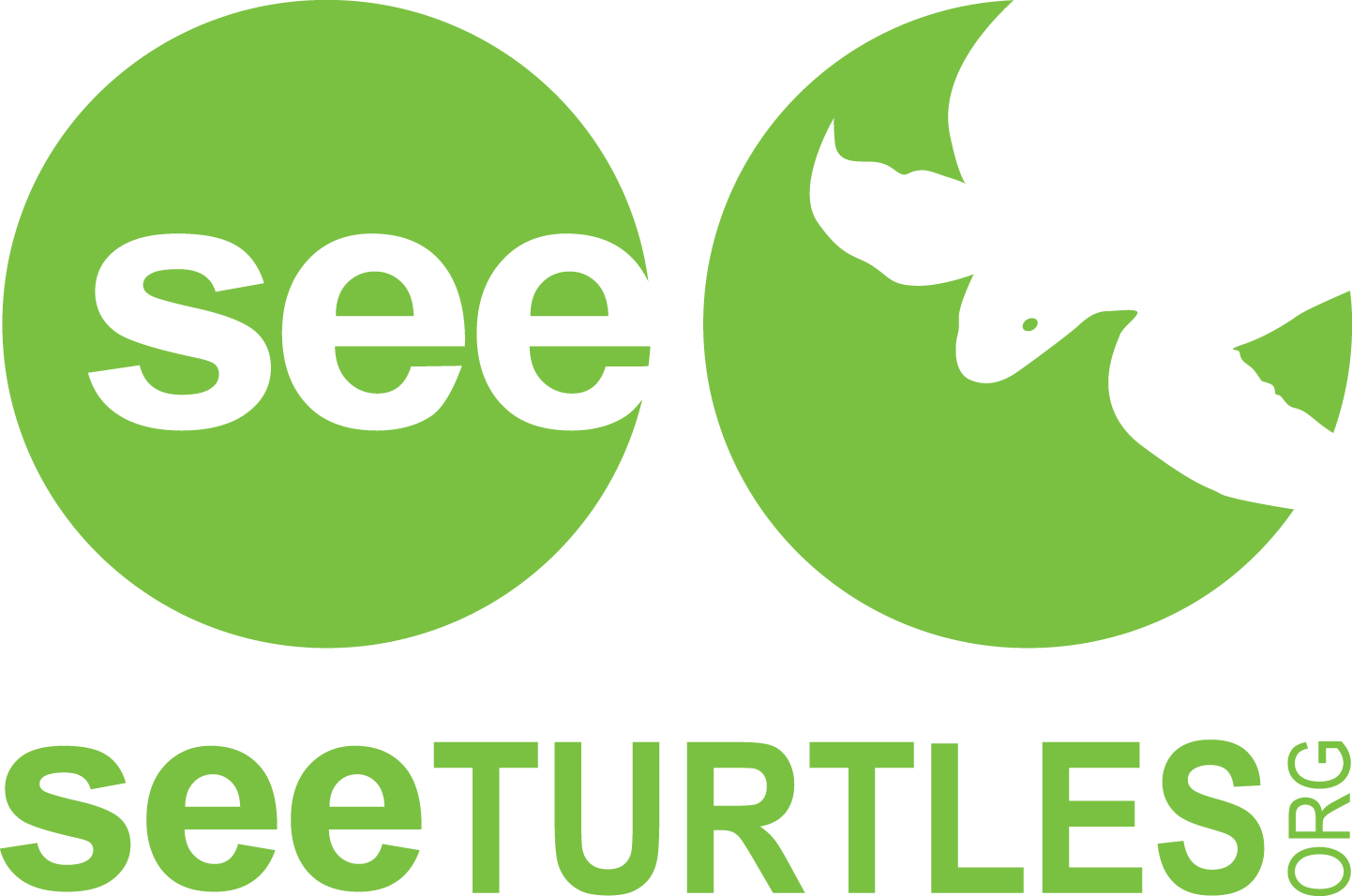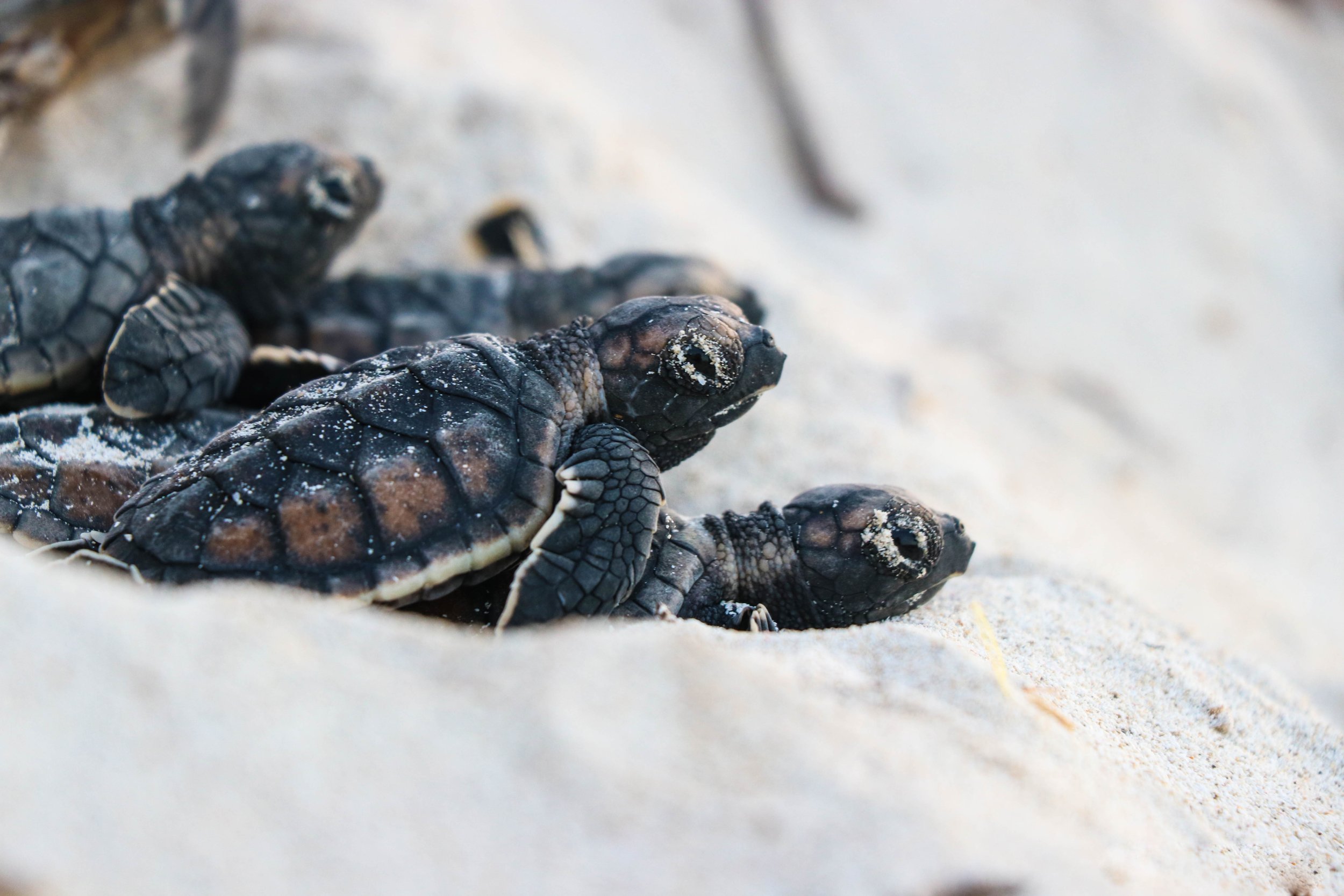May & June Billion Baby Turtles New Grants
Our Billion Baby Turtles program supports important turtle nesting beaches around the world. To date, we have provided $185,000 for 28 nesting beaches, helping to save an estimated 2.5 million hatchlings in 2023, with more grants planned for the rest of the year. See all of our partners here.
ProNatura Yucatan, Mexico
The project centers on the protection and recovery of sea turtle populations at three of the major nesting beaches for hawksbills and green turtles in the Yucatan Peninsula, the Caribbean, and the Northwest Atlantic, the team surveys a total of 79 km (49 miles) of beach. ProNatura Yucatan protects annually an average of 1,148 nests of hawksbills and 1,334 of green turtles; this is more than 200,000 baby turtles (for both especies) protected and helped to get to the big blue. With a grant of US $15,800, Billion Baby Turtles supports ProNatura this season to continue this great work.
Hawksbill hatchlings from Mexico. Photo: Maria Andrade
Vida Marina, Puerto Rico
The Sea Turtle Project of Western Puerto Rico is one of the projects operated by Vida Marina: Center for Ecological Restoration and Conservation of the University of Puerto Rico at Aguadilla. The program staff monitors beaches for nesting activity, performs night-time watches, to tag and measure female leatherback turtles, using metal and pit tags, and performs nest inventories. This project also assesses, investigates, reports and helps reduce sea turtle conservation threats such as: presence of feral dogs and cats, egg poaching, nest trampling by horseback riding tours and light pollution on nesting beaches.. Billion Baby Turtles contributed this season with a grant of US$ 5,000.
Mar Alliance, Guna Yala, Panama
The autonomous Guna Yala Comarca on the Caribbean coast of Panama hosts incredible biodiversity and marine ecosystems. MarAlliance, which includes indigenous Guna biologists, students, educators, and fishermen, has been working in the Comarca to better understand the populations of marine megafauna in these habitats through in-water monitoring, as well as by conducting education, outreach, and capacity-building activities with schools, tour guides, fishers, and community leaders to improve management and conservation of marine resources. This year Billion Baby Turtles supported MarAlliance with US$ 3,000 to establish and train the local community as managers of the project.
Sri Lanka Turtle Conservation Project, Rekawa, Sri Lanka
Rekawa is a small fishing village located on the Southern coast of Sri Lanka. Five species of sea turtles come ashore to nest on the beaches of Sri Lanka and all these five species nest in Rekawa. It is probably the most important green turtle nesting rookery in Sri Lanka. Until 1996, none of the turtle eggs survived but were consumed or sold by the locals. The main objectives of this project are: 1) In situ protection of all sea turtle nests and hatchlings at this sanctuary; 2) provide alternative livelihood for Rekawa community members who used to depend on turtle egg collection; and, 3) provide an opportunity for general public, tourists and researchers to participate and learn more about this turtle population. On average this area has 800 nests of green turtles, 40 of olive ridleys, and sporadic nests of leatherback, loggerhead and hawksbills. With these efforts more than 80,000 hatchlings are helped every year to get to the ocean. Billion Baby Turtles program supported this project with a grant of US $10,000.
Comunidad Protectora de Tortugas de Osa, Osa Peninsula, Costa Rica
This Organization protects especially olive ridleys and green turtles and sporadically hawksbills and leatherbacks at 3 beaches (Playa Carate, Pejeperro and Río Oro). Since 2019 Tortugas de Osa monitoring and research projects offer the opportunity to involve different local actors, volunteers and conservation organizations, to contribute to the protection and monitoring of marine turtles. This is a community-led conservation association that aims to integrate local people in the conservation of the highly biodiverse Osa Peninsula, and more specifically the busy sea turtle nesting beaches of Rio Oro and Carate. They focus on marginalized communities in rural areas where individuals are looking to make positive change away from mining, hunting and poaching inside the Corcovado National Park area. Billion Baby Turtles supported this project with US$ 10,000 for this year.
Olive ridley hatchlings from Costa Rica. Photo: COPROT
Sea Turtle Conservancy, Tortuguero, Costa Rica
Sea Turtle Conservancy has conducted research and monitoring Tortuguero Beach since the mid-1950s. Tortuguero hosts a globally important green turtle rookery that regularly receives more than 100,000 green turtle nests per year. From 2010 through 2020, green turtle nesting at Tortuguero has ranged from a low of 48,625 nests in 2017 to a high of 180,310 nests in 2010. During this ten-year timeframe, the average annual number of green turtle nests was 109,868 nests. STC recorded 68,453 nests in 2020, which continued what appears to be a recent downward nesting trend that STC has observed since 2014. This beach produces around 8,230,212 green turtle hatchlings every season. This is the first year that SEE Turtles support this project with a grant of US $10,000 through our Billion Baby Turtles program.
Sea Turtle Conservancy, Soropta, Panama
Soropta Beach is a 14-km Beach hosts between 200 – 800 leatherback nests per year, making it one of the most densely nested beaches for this species in the region. Unfortunately, illegal hunting of leatherback nests remains an issue due to its isolated location, relative ease of access and cultural tradition of sea turtle egg and meat consumption in the area. In 2021 this beach had the a record of 1,484 nests at this beach but lost 48% of them due to illegal take. In 2022, STC is implementing a two-pronged approach to curtail illegal egg taking: implementing a hatchery and directly housing law enforcement personnel at STC’s Biological Research Station. Billion Baby Turtles supported this project with a grant of US $7,000 in addition to bringing our first Panama conservation tour this year.
Nesting leatherback from Soropta, Panama. Photo: Brad Nahill / SEE Turtles
Estación Las Tortugas, Mondonguillo Beach, Costa Rica
Estación Las Tortugas is a sea turtle nesting project to help protect the vulnerable leatherback sea turtle from the illegal egg collection and to help its recovery on a national and international level in the 3 km beach. Being part of the Caribbean coast of Costa Rica, and together with the other beaches on that coast side of Costa Rica, this beach is part of one of the most important nesting sites in the world for the Atlantic leatherback sea turtle. This project protects every year between 300 and 600 nests of leatherbacks and sporadic nests of green and hawksbill turtles and more than 12,000 baby turtles are helped to the ocean every year. Billion Baby Turtles supported Estación Las Tortugas with a grant of US $2,000 this season.



